This site contains affiliate links, view the disclosure for more information.
What should homeschooling in the early years look like?
A lot is being said about setting up your kids for success and building a strong foundation. Although I am 100% for that, the immense pressure to constantly entertain and stimulate young children to ensure they are adequately enriched and socialized often overstimulates them (and ourselves) and overlooks the simple, quiet childhood experiences that are crucial for whole and healthy child development.
Charlotte Mason believed that young children should have slow and quiet days filled with play and outdoor time that encourages exploration, curiosity, and a love for learning. She emphasized the importance of creating a nurturing home environment and cultivating good habits before starting formal education.
Incorporating her insights on home education and science-based knowledge on child development, I explore the most important elements to focus on during the “toddler/preschool years” of the homeschooling journey.
Read more: Homeschool Room Ideas and Tips.
Homeschool Preschool: Prioritize What Matters the Most
I’m talking about the things that actually make a difference when it comes to whole and healthy child development.
Intuitively or not, nearly all parents understand the importance of nurturing cognitive, physical, emotional, and social development in the early years. However, what does seem counterintuitive is that, in order to promote whole and healthy development in all of these areas, we don’t have to buy more “developmental” toys, start early on the ABCs, enroll them in classes, schedule weekly playdates, or fill their days with enriching activities.
Instead, there are just a few very important things that indeed make a positive difference in child development. These are the aspects we should focus on when planning how to homeschool a toddler or preschooler, how to fill their days, and set up their schedules.
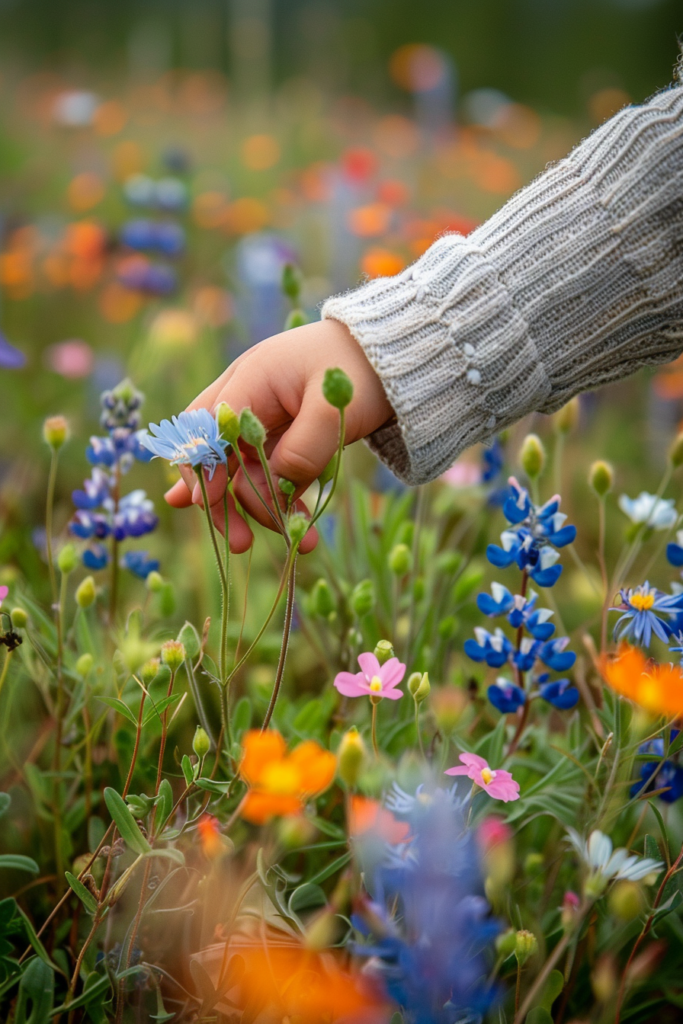
Sleep and Nutrition
Quality sleep and nutrition are the biological foundations of healthy development and make a huge impact in the long run.
Make sure your child goes to bed at an appropriate time for their age – the younger the child, the more sleep they need and the earlier they should go to bed – and that their sleeping schedule is consistent on most days.
Introducing a variety of whole foods and avoiding ultra-processed and artificially sweetened foods is not only important for physical health but also essential for healthy brain development.
Interacting with food also provides great learning opportunities, and we should encourage our kids to participate in as many steps as possible: from gardening and harvesting to preserving and cooking.
Free Play
Free play is an unstructured, spontaneous, child-initiated play that allows children to engage in activities driven by their own interests, with their own choice of toys or materials (given the possibilities), without strict rules, directions, interventions, or predefined outcomes.
Free play is probably the most important activity for child development, contributing massively to creativity, cognitive development, fine and gross motor skills development, emotional regulation, social skills, intrinsic motivation, independence, problem-solving skills, and more.
Read more: What is Free Play and How to Get Started.
To encourage free play we must make our peace with boredom and understand that having “nothing to do” can actually be a great thing. I go way deeper into this topic in this blog post.
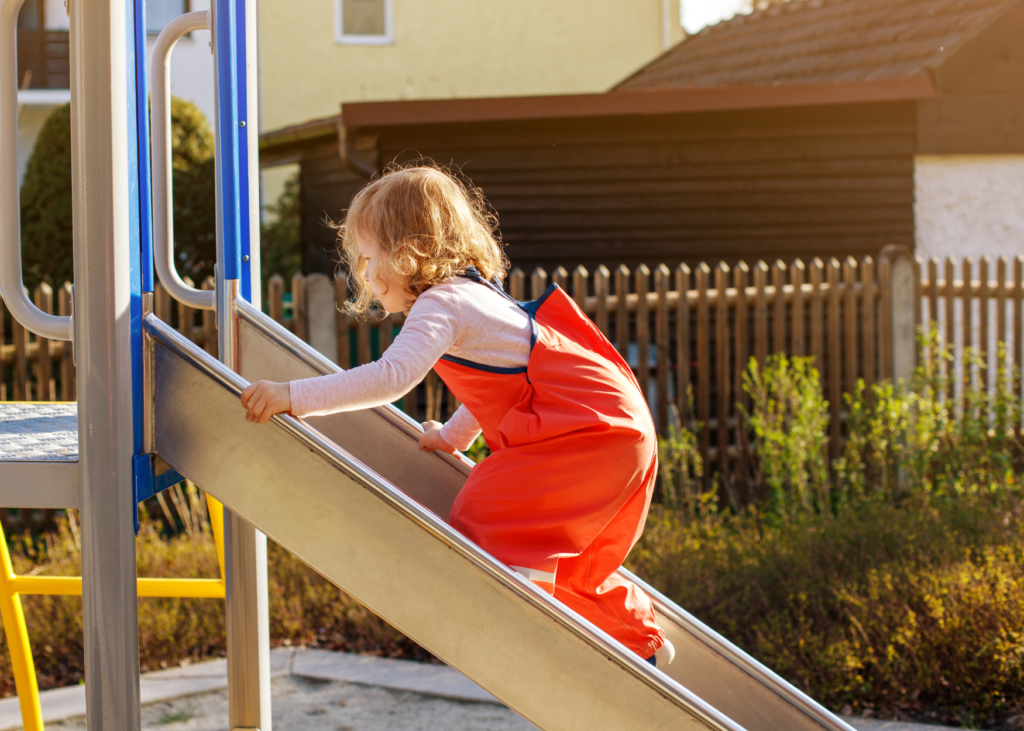
Less is More
In an age of excess, it’s easy to fall into the trap of overloading our children with toys, stimuli, and activities.
However, when it comes to child development, less is often more.
This is especially true when it comes to screen time, toys, and scheduled activities. Although there’s nothing wrong with any of those things, too much of them can cause way more harm than good.
When children have fewer things and get less external entertainment, they have more time and opportunities to develop their inner resources, observe, explore, imagine, create…
Charlotte Mason advocated for simplicity, encouraging parents to be intentional about the materials and experiences offered to our children. Providing fewer, high-quality toys and opportunities allows children to engage more deeply and develop their capacities more fully.
Read more: The Best Charlotte Mason Quotes.
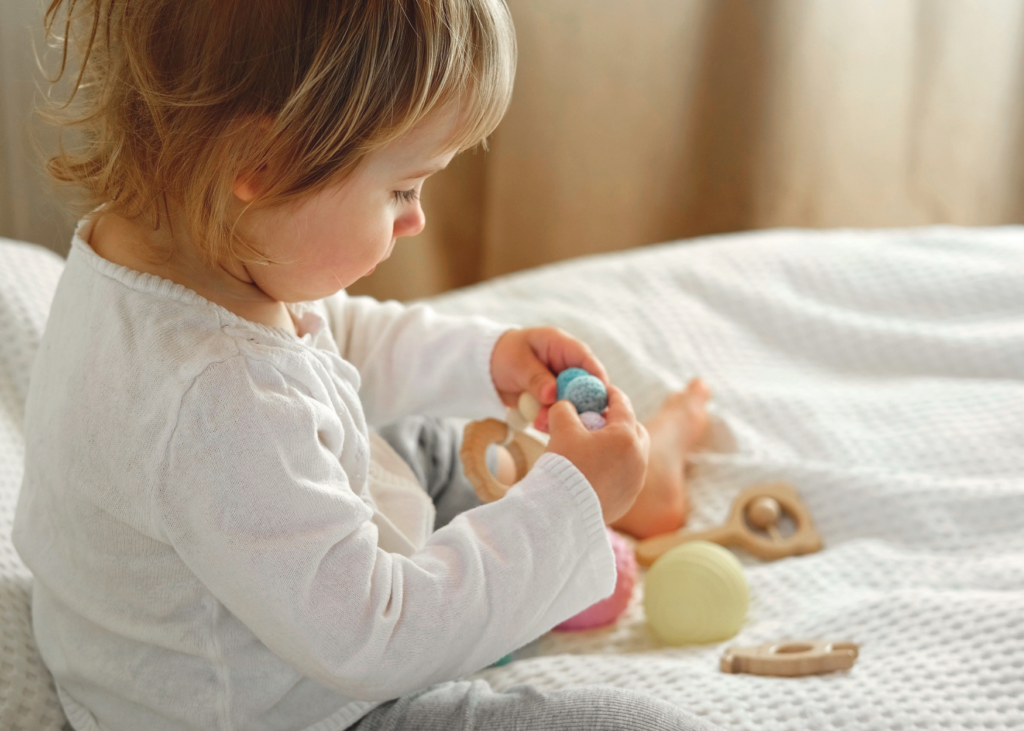
Quality Time and Connection
With all the pressure to give our children a good education, intellectual stimulation, entertainment, and adequate socialization, sometimes we forget to just be with them. To be truly present and connected.
But our presence and attention are the greatest gifts we could give them. Children thrive when they feel loved and secure, and this connection fosters a sense of belonging and confidence.
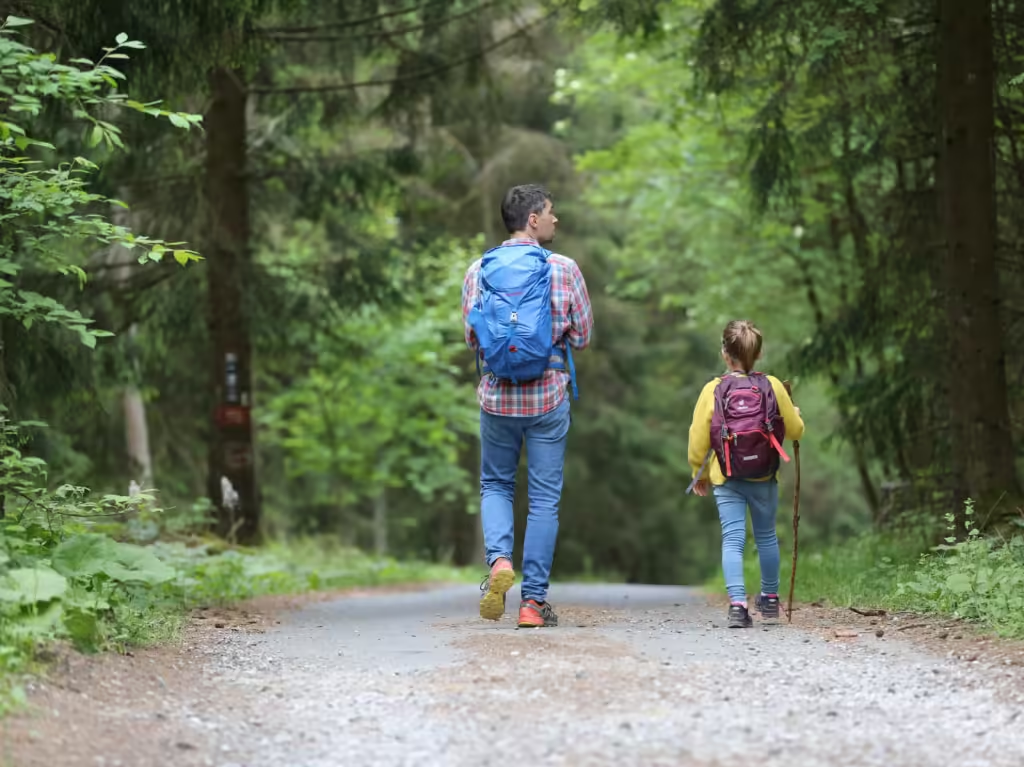
Active Participation
Dr. Maria Montessori argued that children should be active participants in their family life and in their own learning experiences. This means allowing them the freedom to make choices, learn from their mistakes, and express their thoughts and feelings.
She believed that children learn best through doing and emphasized the importance of hands-on experiences: “What the hand does, the mind remembers”. (Maria Montessori, The Absorbent Mind)
By involving them in the family’s daily tasks, chores, and decisions, children gain a sense of belonging, responsibility, self-esteem, agency, and ownership over their lives.
According to Dr. Maria Montessori, our job as parents is to “never help a child with a task at which he feels he can succeed.”
Read more: Everything You Need to Know About the Montessori Method.
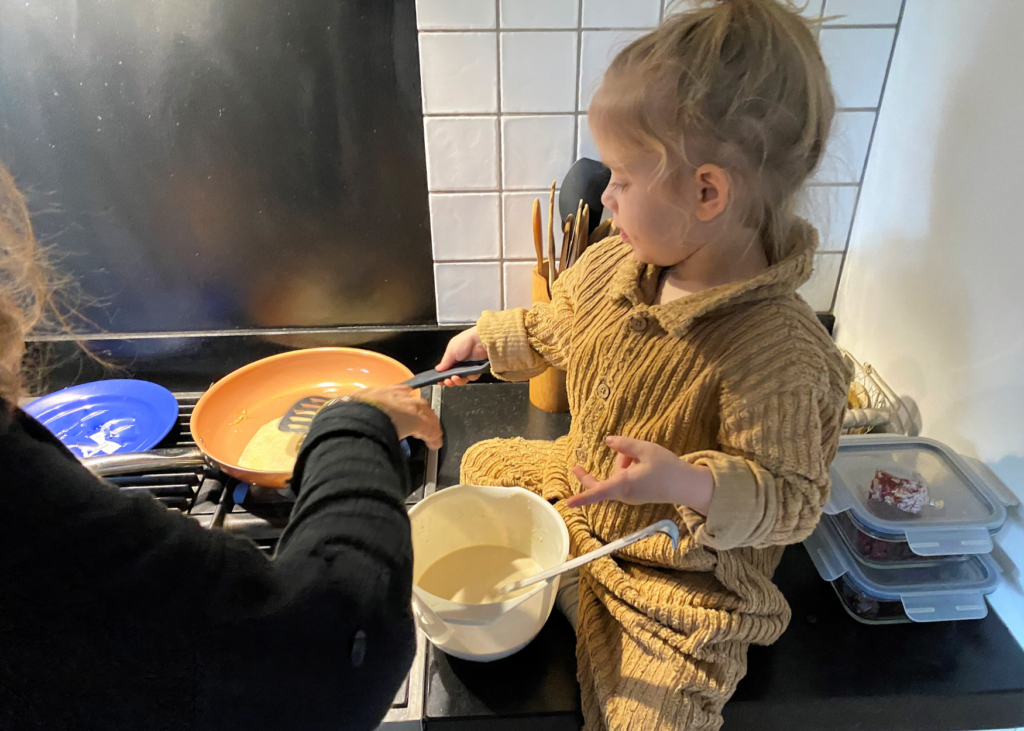
Outdoors Time and Nature
Spending time outdoors and experiencing nature with their own hands is a vital component of a child’s education and development.
Charlotte Mason believed that being outdoors, observing and interacting with the natural world was one of the most important things for child development:
“For the first six years, children should have low-key schedules so they can just be and grow, and they should spend most of their waking hours outside enjoying the fresh air. “ (Charlotte Mason, Home Education, p. 43)
Being outdoors provides children with many learning opportunities without us having to actually teach anything. It also nurtures curiosity, physical health, attention skills, and a deep appreciation for the environment around them.
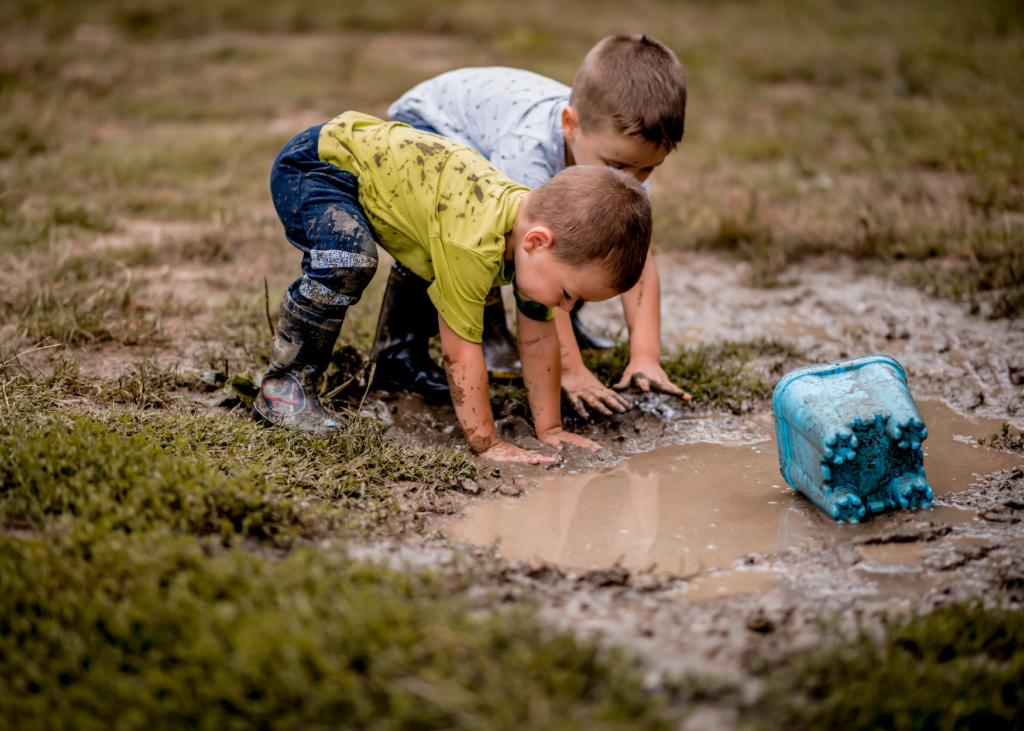
Good Habits and Life Skills
Instilling good habits and teaching life skills in early childhood is an investment for life. Charlotte Mason emphasized the importance of spending time and energy on instilling good habits over anticipating academics, for “The habits of the child produce the character of the man”.
Teaching habits and essential life skills empower children to take responsibility for themselves and their surroundings:
→ tie shoes
→ brush teeth properly
→ dress themselves
→ clean up after themselves
→ basic cooking skills
→ basic housekeeping
These skills foster a sense of competence and independence that will serve them throughout their lives.
“The mother who takes pains to endow her children with good habits secures for herself smooth and easy days; while she who lets their habits take care of themselves has a weary life of endless friction with the children.” (Charlotte M. Mason, Home Education)
What About Academics?
Does this mean you can’t get started on academics or schedule formal learning time, classes, experiences, etc. for your toddler/preschooler? You absolutely can!
I’m not arguing against any of that. But from a developmental perspective, what is most important for whole and healthy development, in the long run, is not if your child learned to read at 3 or 6, but if they had good quality sleep and nutrition in the early years, a bunch of free play time, parents they could trust, autonomy and safety to try new things on their own and make mistakes.
Before we think of which curriculum is best, when to start, and how much time to spend on formal learning, we have to make sure the basics are being checked on a daily basis.
Start Slow. Very Slow.
Introducing academics to young children should be a gradual and enjoyable process.
Once you feel ready to start a more formal education, you might feel tempted to plan out your whole week’s schedule in advance and fill it up with as many educational activities as possible. Resist the urge to do that.
Initially, the focus should be on the environment and the child’s signs of interest and readiness.
Provide a rich environment full of ideas and experiences, and let your child observe, interact, and explore.
As they show interest in particular “subjects” or topics, introduce more structured learning activities.
Example: If your child shows interest in counting, gradually introduce counting and number lessons, but keep them short and engaging.
Initially, lessons can be as short as 5-10 minutes, and shouldn’t take longer than 20 minutes in total. However, when the child shows signs of disinterest, boredom, or complete confusion, we should immediately stop and try again another time, perhaps through a different method/resource.
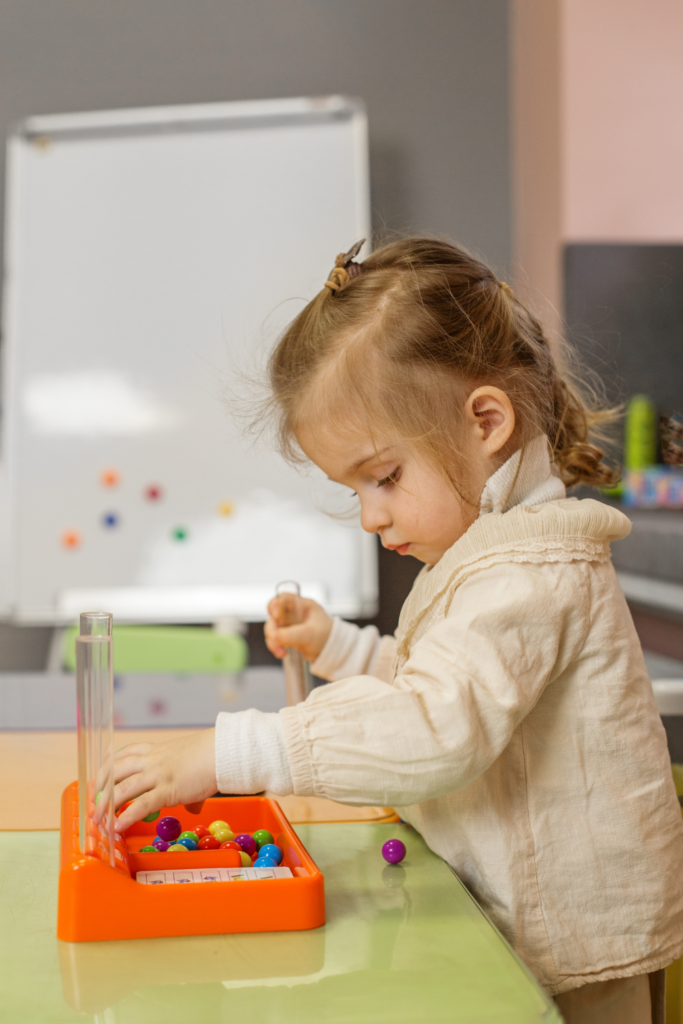
Introduce Academics Through Play
The main goal of education in the early years is to nurture in the child a love for learning.
The best and most natural way to do that is to make learning experiences playful and joyful.
You don’t need special toys in order to do that, as play doesn’t require toys. However, there are simple and amazing resources that can help your child naturally learn through play, such as: puzzles, books, board games, and basic art supplies.
Read more: 18 Indoor Montessori Activities for Toddlers.
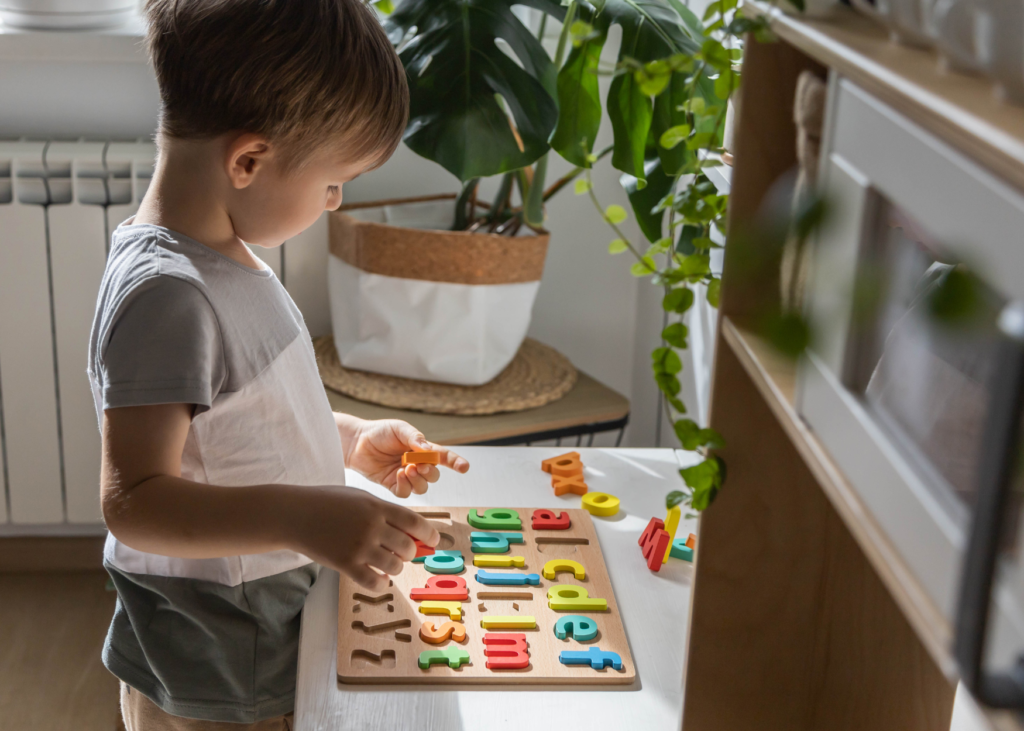
Follow Your Child’s Interests
The most important thing, in my opinion, when introducing formal education in the early years is to follow your child’s interests.
This is by far the greatest advantage of homeschooling: to tailor learning experiences to match your child’s unique interests and passions.
You’ll soon figure out that any subject can be taught through a topic your child is interested in, and this will make learning way more enjoyable, easier, and more natural. Plus, this is the way to inspire a lifelong love of learning.
Read more: The Best Quotes on Homeschooling and Learning.



